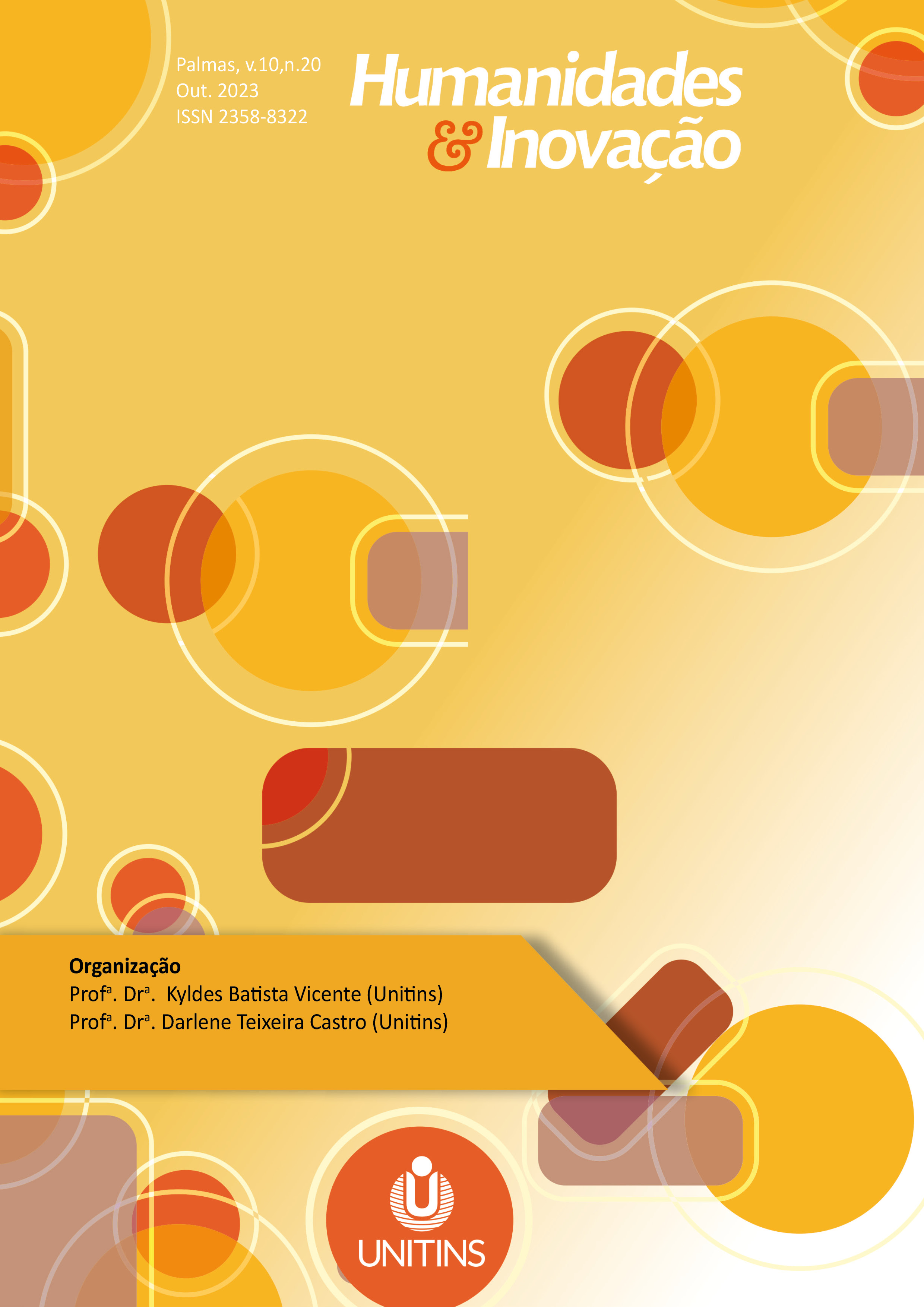A TECNOLOGIA ASSISTIVA NO CONTEXTO EDUCACIONAL ESCOLAR VOLTADA PARA O AUTISTA: A INCLUSÃO EM QUESTÃO
Resumo
O presente trabalho tem por finalidade apresentar a Tecnologia Assistiva (TA) e abordar seus potenciais para o processo curricular, especificamente para o trabalho destinado à inclusão do autista, a partir, por outro lado, da problematização acerca da necessidade de aprofundamento acerca do autismo, o que também pode trazer subsídios para os contextos curriculares que acolhem educandos autistas. Atualmente, ainda falta conhecimento sobre TA, como também existe uma carência de propostas curriculares na formação de professores para lidar com alunos com necessidades especiais em Salas de Recursos Multifuncionais, em foco, com autistas, matriculados na escola comum. Isto se faz pertinente, visto que os estudos da Área de Educação trazem uma abordagem generalizante e superficial nesta especificidade. Dentre as categorias de TA, encontra-se o uso da Comunicação Aumentativa e Alternativa (CAA), que é uma tecnologia utilizada com sujeitos com Transtorno do Espectro Autista (TEA) no âmbito escolar, objeto desta pesquisa no Programa de Pós-Graduação em Educação e Contemporaneidade (PPGEduC/UNEB). Para além dessa questão do uso da CAA (TA) em sujeitos com TEA, que está inserida no molde tecnicista, há também uma problematização referente à compreensão do Autismo do ponto de vista de uma abordagem da subjetividade, que considera a infraestrutura psíquica do autista, que faz um diferencial na questão diagnóstica e no encaminhamento clínico, o que extrapola o âmbito estritamente pedagógico e educacional escolar, contextualizada com as Tecnologias da Informação e Comunicação, e que redimensiona a compreensão dos potenciais da TA e da inclusão escolar da pessoa com autismo, bem como indicando possibilidades singulares para o acolhimento deste ser, em conformidade com sua singularidade.
Referências
BAUMAN, Zygmut. Modernidade Líquida. Jorge Zahar Editor: Rio de Janeiro, 2001.
_______________ . Ética Pós-Moderna. 3ª ed. São Paulo: Ed. Paulus, 2006.
BERMAN, Marshall. Tudo que é sólido se desmancha no ar: A aventura da Modernidade. Companhia das Letras: São Paulo, 1986.
BIESTA, Gert. Para além da aprendizagem: Educação democrática para um futuro humano. Tradução Rosaura Eichenberg. 1 ed. Belo Horizonte: Autêntica Editora, 2020.
BRASIL. Subsecretaria Nacional de Promoção dos Direitos da Pessoa com Deficiência. Comitê de Ajudas Técnicas. Tecnologia Assistiva. Brasília: CORDE, 2009.
_______. Presidência da República. Lei nº 12.764, de 27 de dezembro de 2012. Brasília, DF. Institui a Política Nacional de Proteção dos Direitos da Pessoa com Transtorno do Espectro Autista; e altera o § 3º do art. 98 da Lei nº 8.112, de 11 de dezembro de 1990. Disponível em:
CASTELLS, Manuel. A Sociedade em Rede – A era da informação: economia, sociedade e cultura V. I. 14ª impressão. Tradução: Roneide Venancio Majer. Paz e Terra: São Paulo. 1999.
FREUD, Z. O Mal Estar na Civilização. Rio de Janeiro: Imago Editora. 1974.
GALVÃO FILHO, T. Tecnologia Assistiva: um itinerário da construção da área no Brasil. Curitiba: Editora CRV, 2022.
_________________. Tecnologia Assistiva para uma Escola Inclusiva: apropriação, demandas e perspectivas. Tese (Doutorado em Educação) – Universidade Federal da Bahia, Salvador, 2009.
GIACOIA JR., Oswaldo. Nietzsche e a Modernidade segundo Habermas. In: MARTINS, Clélia A.; POKER, José G. (Organizadores) Reconhecimento, direito e discursividade em Habermas. São Paulo: FAP-UNIFESP, 2014.
GIDDENS, Anthony. As Consequências da Modernidade. Tradução de Raul Fiker – São Paulo: Editora UNESP, 1991.
LIMA JR., A. S. de. Tecnologias Inteligentes e educação: currículo hipertextual. Rio de Janeiro: Quartet, 2005.
LIMA JR., A. S. de. O impossível da comunicação e a metáfora da linguagem: uma compreensão alternativa da relação entre as Tecnologias de Informação e Comunicação e os Processos Formativos tecida no contexto da prática profissional. In: AMORIM, Antônio; LIMA JR., Arnaud Soares de; MENEZES, Jaci. (Orgs.) Educação e contemporaneidade: Processos e metamorfoses. Rio de Janeiro: Quartet, 2010, p. 15-54.
LIMA JR, A. S, de.; FIALHO, Nadia Hage. A noção de sujeito da Ciência e a subversão da Psicanálise: provocações para a pesquisa e para a Educação. Caderno de Pesquisa Esse in Curso, Salvador, v.1, p. 23-36, 2007.
LIMA JR, A. S, de. A escola no contexto das tecnologias de comunicação e informação: do dialético ao virtual. Salvador: EDUNEB, 2007.
LIMA JR, A. S, de. O dinamismo do sujeito na ciência, tecnologia, inovação e educação. In: LIMA JR, Arnaud S. de. (Org.). Educação e contemporaneidade: contextos e singularidades. EDUFBA/EDUNEB, 2012, p.29 a 66.
LIMA JR, Arnaud Soares de. Educação e Humanidades: conhecimento ou saber? 1 ed. Rio de Janeiro: Autografia, 2021.
ROUANET, Sérgio. Humanismo e Contra-iluminismos. IN Cadernos de Cultura e a Comunicação Contemporâneas. FACOM, Salvador, 1994.
SALES, M. V. S. As Tecnologias no Contexto Educativo: perspectivas de inovação e de transformação. In: SALES, M.V.S.(Org.) Tecnologias e Educação a Distância: os desafios para formação. Salvador: Eduneb, 2018, p. 79-102.
A submissão de originais para este periódico implica na transferência, pelos autores, dos direitos de publicação impressa e digital. Os direitos autorais para os artigos publicados são do autor, com direitos do periódico sobre a primeira publicação. Os autores somente poderão utilizar os mesmos resultados em outras publicações indicando claramente este periódico como o meio da publicação original. Em virtude de sermos um periódico de acesso aberto, permite-se o uso gratuito dos artigos em aplicações educacionais, científicas, não comerciais, desde que citada a fonte (por favor, veja a Licença Creative Commons no rodapé desta página).











